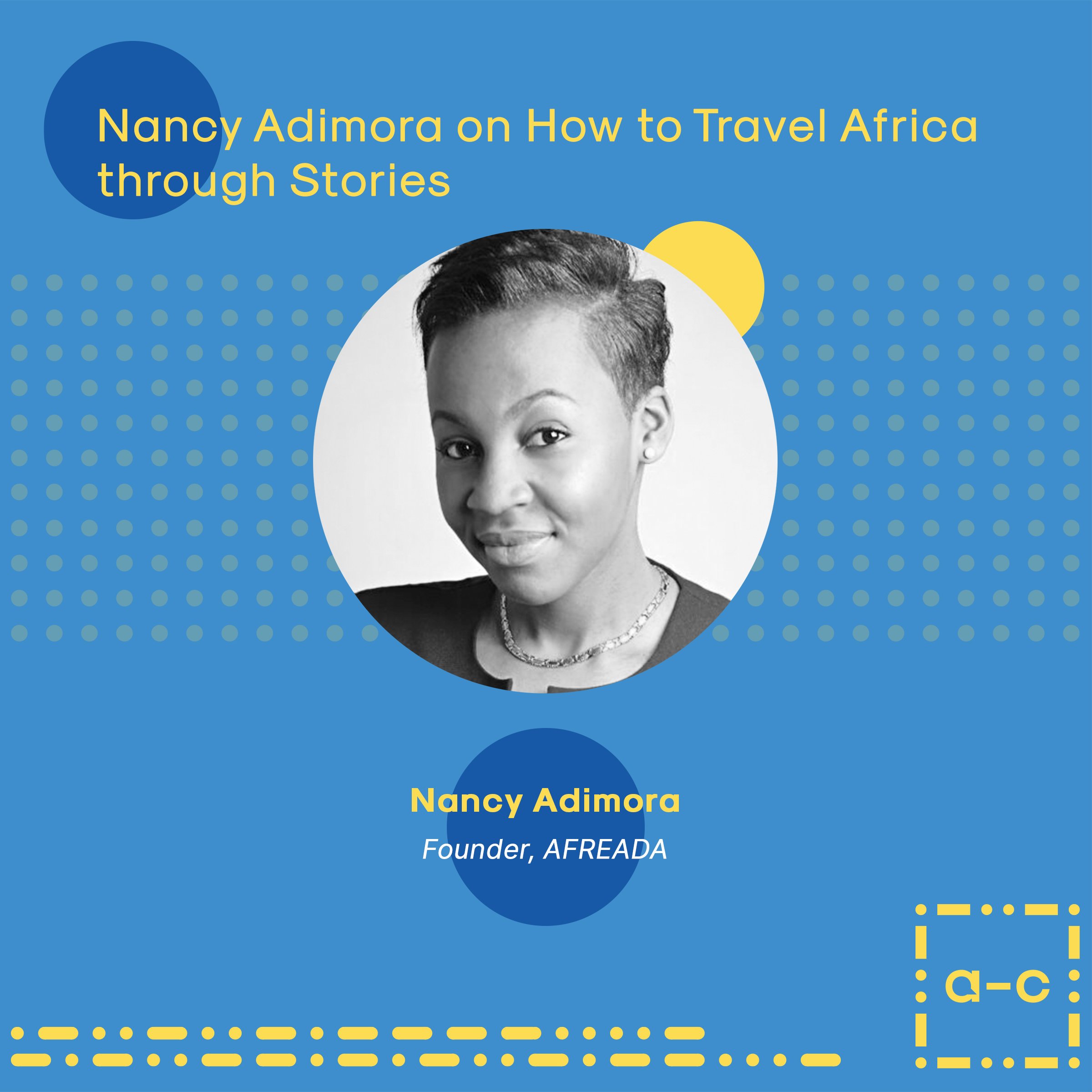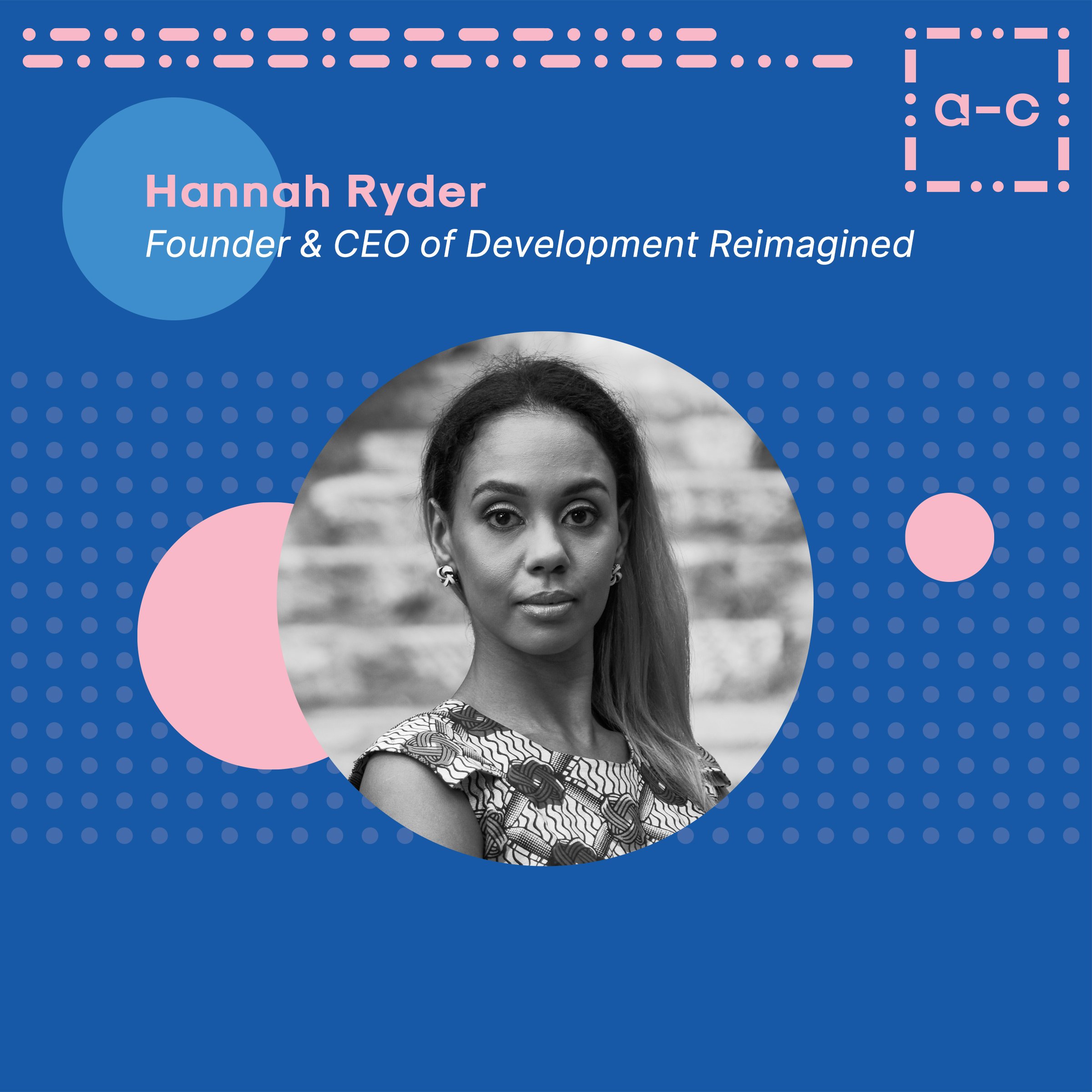
Episode 24:William Moseley on Decolonizing Agriculture in Africa
Decolonization is a political phenomenon, but it’s also an intellectual challenge that requires re-imagining how to approach development challenges today. One such challenge is food security: at least one in five Africans goes to bed hungry and an estimated 140 million people in Africa face acute food insecurity. To correct some of the missteps that led us to today’s food security crisis, some experts argue it’s time to re-examine indigenous knowledge of agricultural systems. In this episode of Afro-Catalyst, we speak to William Moseley, a member of the advisory panel to the United Nations Committee on World Food Security, about how we can center the wisdom of African farmers to promote agroecological approaches in contemporary agricultural policy.

Episode 23: Essé Dabla-Attikpo on Africa's Evolving Art Scene
Artists push us to question and engage with the world around us, but their art and their creative process are frequently met with skepticism. African artists know this dynamic all too well. “This no be art” (Ghanaian pidgin for “this is not art”) is a phrase all too often heard at exhibitions and galleries. But a growing number of artists and curators have set out to change that. From ArtxLagos to 1:54 Contemporary Art Fair, new platforms presenting the best and brightest of today’s African artists are rapidly emerging. A young generation, a large diaspora, and rising recognition of the cultural and economic value of African art are fueling a growing collector base. And Essé Dabla-Attikpo is helping consumers and creatives capitalise on this moment. In this episode of Afro-Catalyst, we speak to Essé Dabla-Attikpo, a Togolese-Beninese art consultant, cultural producer, and curator about her efforts to make art accessible to all through her platform This No Be Art.

Episode 22: Chibu Akukwe on Building a Premium Luxury Brand in Africa
Ògógóró, also known as kai kai, akpuru-achia or Sapele water, is an indigenous spirit made from distilled palm wine once banned during British colonial times. But after decades of suppression, the once-taboo drink is back in fashion, consumed by tastemakers and business leaders across Africa and the diaspora. But how did a drink once seen as provincial become the darling of the continent’s trendsetters? Micro-distilled in small batches and handcrafted in Nigeria, Pedro’s began in the tropics of Delta State and was meticulously refined and perfected in Lagos by a renowned master distiller. Pedro’s fuses natural distillation techniques with a new African narrative to reinvent the original spirit of the continent. In this episode of Afro-Catalyst, we speak to entrepreneur Chibu Akukwe, co-founder of Pedro’s, about how he and co-founder Lola Pedro are building a proudly Nigerian brand using indigenous ingredients. Since launching in 2017, the brand is now stocked from London to Lagos, Nairobi and soon New York.

Episode 21: Why We Need To Talk About Mental Health in Africa
Once a neglected area of health, the prevalence of mental health conditions is on the rise. In Africa, the issue is particularly acute: 85% of individuals have no access to effective treatment and there are only 1.4 mental health workers per 100,000 people, compared with a global average of 9.0 per 100,000. In the face of this scarcity, there must be innovation – and a recognition of the unique social contexts that shape both the origin and treatment of mental illness. In this episode of Afro-Catalyst, we speak to clinical psychologist Crick Lund, a professor at King’s College London and an expert on mental health in low-income countries. Lund breaks down sobering statistics about Africa’s mental crisis while highlighting creative interventions. We learn about everything from how grandmas are intervening to provide talk therapy in Zimbabwe to how clinics and healers in rural Nigeria and Ghana are partnering to refer patients to receive the care they need.

Episode 20:How to Travel Africa through Stories
Africa’s vast expanse is home to 54 countries, full of 1.2 billion people — and 1.2 billion stories. In the last few years, we’ve seen an expansion of interest and excitement as those stories cross borders. From traditional wedding ceremonies in Nigeria to a boat ride down the Zambezi, books have helped hundreds of millions of readers explore the continent at a time when travel remains long and expensive and visa requirements frustrate efforts at regional movement. Creatives—writers, filmmakers, playwrights and more—have used stories to bridge divides and bring faraway places closer. In this episode of Afro-Catalyst, we speak with Nancy Adimora, publishing industry veteran and founder of AFREADA, a literary platform that highlights stories across Africa, about why we need more stories and how we can enable more vivid tales from across the continent to be told.

Episode 19: What Does an Africanist Approach to Foreign Policy Look Like?
The conversation about Africa and its foreign partners is often boiled down to beneficiaries vs. donors. This black-and-white picture fails to capture the unique economic and political contexts that shape how African countries develop their foreign policy agendas. International policy circles often neglect this Africanist perspective because the region’s countries often lack adequate representation in the rooms where critical international political decisions are made–even in instances when the discussions held focus on the continent. In this episode of Afro-Catalyst, we speak to Hannah Ryder, CEO of Development Reimagined (DR) about why and how this dynamic is shifting as African governments join forces to grow their international influence.

Episode 18: Salma Sabour on Protecting Africa’s Natural Treasures
More than 2,000 years ago, the Greek philosopher Plato told the story of the civilization of Atlantis, which sank into the sea after a barrage of fire and earthquake. Its treasures were lost in the deep forever. While this story is more myth than reality, it is a reminder of the realities of climate change—and what we stand to lose from inaction. Natural and cultural heritage sites have enormous cultural, ecological, social, and economic value, but climate change is increasingly putting them at risk, especially in Africa. Researcher Salma Sabour studies why the region’s precious wetlands, sanctuaries, and reservoirs are exposed to phenomena like rising sea levels and erosion and how we can take steps to better protect them. In this episode of Afro-Catalyst, we speak to Sabour about the challenges facing extraordinary landscapes that make up Africa’s 800+ natural heritage sites from the Serengeti to the Cliff of Bandiagara.

Episode 17: Jane Munga on Why Policymakers and the Private Sector Should Mind Africa’s (Usage) Gap
Internet access is an essential part of modern life, necessary to communicate and access goods and services but also to exercise other fundamental rights from freedom of expression to political participation, health, and more. However, persistent divides in digital connectivity threaten the socio-economic development of many countries and regions. Africa is most adversely impacted: In 2021, only 33 percent of the population was using the internet, according to the International Telecommunication Union. That means an estimated 871 million people lack access. In this episode of Afro-Catalyst, we speak to Jane Munga, a researcher at the Carnegie Endowment for International Peace, to understand why -- and how -- policymakers, mobile operators and other stakeholders must collaborate to address the gap.